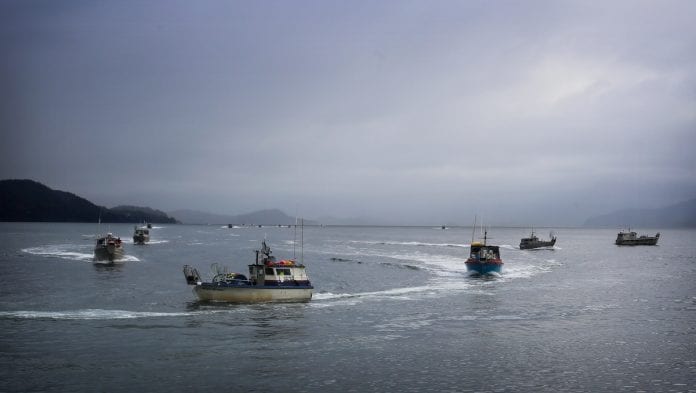
A new study focused on health risks to gillnet fishery harvesters in Cordova shows a prevalence of chronic health risks, including hearing loss, upper extremity disorders and sleep apnea.
Researchers from the University of Washington and University of Alaska Fairbanks said occupational factors including exposure to noise, the upper extremity demands of gillnetting, and long working hours while fishing exacerbate these chronic health conditions. Health promotion programs targeted toward these conditions may present opportunities for improving total worker health, they said, in the study published in early June in the online Journal of Agromedicine.
The 66 fishermen participating in the preseason survey and 38 participating in the midseason survey were predominantly white males averaging 49 years of age, nearly 80 percent of whom considered their health to be good or better, but 70 percent of them were overweight or obese. Researchers said that these harvesters reported working longer hours, with less sleep and less aerobic exercise during the fishing season, and that 70 percent of participants had one or more upper extremity disorders, including 40 percent with rotator cuff tendonitis.
The Cordova harvesters were selected as a sample of gillnet fishermen in Alaska in an effort to better understand their chronic health risks.
Their work during the salmon fishing season, which generally is four months in length, from mid-May to mid-September, including clearing harvested fish from the net by picking fish, which required rapid, repetitive movement. While gloves are necessary, they may limit dexterity and contribute to skin infections if not well maintained, the study said. Depending on the number of fish in the net, several hours of standing, picking and storing individual fish in the holds as well as repairing gear may be required of the crew.
While the fishermen considered themselves healthy and showed to be above average in fitness, the prevalence of overweight or obesity in the sample was consistent with that of the general adult population of Alaska.
Despite the manually labor required, participants reported decreased aerobic activity during the fishing season. Fishermen attributed this to the confined space of the fishing vessel, busy work schedules and excessive fatigue that persisted between fishing periods. Alternative approaches mentioned to the study team included hiking in between fishing periods, practicing yoga in the cabin, or, in one case, swimming around the fishing boat in a wetsuit.
Researchers also found concerning the high prevalence of obstructive sleep apnea risk factors in survey respondents. OSA is a breathing-related sleep disorder characterized by apneic episodes during sleep, excessive daytime sleepiness, and decreased cognitive performance.
Comditioning exercise before the fishing season begins, training and experience, and am increased use of automated gear may reduce injury due to repetitive overhead activity, researchers said. Other repetitive stress injuries such as carpal tunnel syndrome may be reduced with tools such as ergonomically designed fish picks, they said.
Researchers noted that their study has limitations, given that the sample of fishermen was very small and may not be generalizable to the gillnet fleet, nor commercial fishermen as a whole. Contacting fishermen and soliciting their participation proved difficult, particularly when follow-up survey instruments were indicated, and there was evidence of a healthy worker bias, as the healthiest workers volunteered for various health assessments, they said.
Researchers said that data collection tools, including the survey and exam, may not be appropriate for other types of commercial fishing. These were relevant to the local setting based on advice from groups including the North Pacific Fishing Vessel Owners’ Association, Alaska Marine Safety Education Association, and the U.S. Coast Guard.
Each sector of commercial fishing has unique chronic health risks, and different data collection tools may be needed to assess different populations, the study concluded. Researchers also said health promotion programs targeted toward health risks faced by the Cordova gillnetters may present opportunities for intervention in this group.














